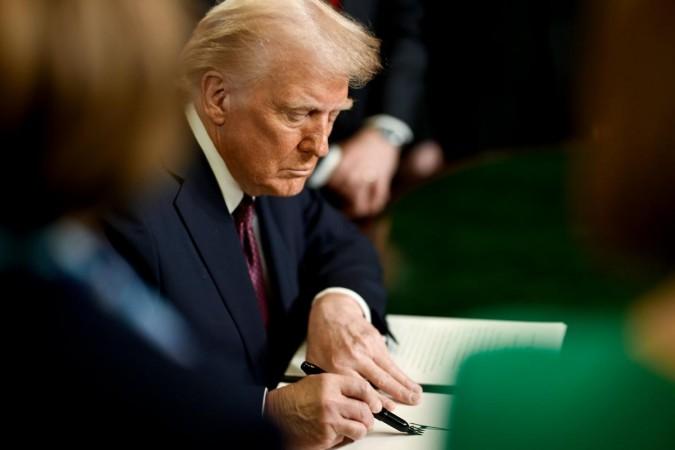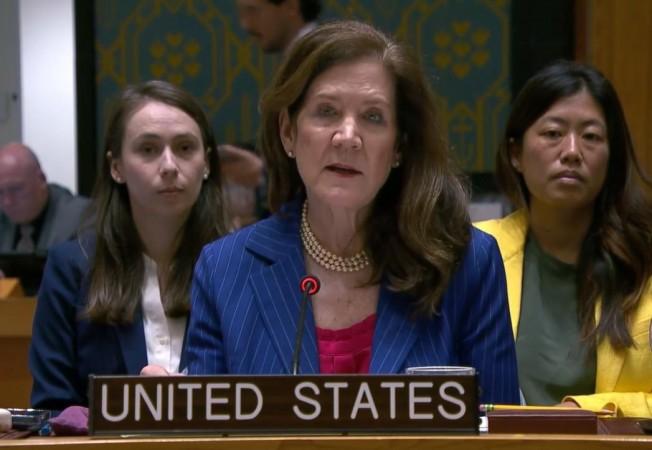
On September 26, 2025, the United States stood alone, casting the sole vote against a United Nations Security Council resolution demanding an immediate unconditional ceasefire in Gaza and the release of all hostages. The 14-1 vote, with no abstentions, exposed a profound rift between global sentiment and U.S. policy, igniting debate over America's role in the Middle East. This veto, driven by its steadfast alliance with Israel, jeopardizes humanitarian efforts and risks isolating the U.S. diplomatically as nations like Portugal recognize Palestinian statehood and Greece deploys naval support for a Gaza aid flotilla. With the world coalescing around calls for peace, the U.S. must reassess its stance to avoid losing its moral and diplomatic credibility.
The resolution sought to halt the escalating violence in Gaza, where Israeli airstrikes have claimed thousands of lives, including 11 in a recent family home bombing, and to secure the release of hostages held by Hamas. The near-unanimous support from the Security Council reflects a global consensus that the current cycle of destruction is unsustainable. Portugal's historic recognition of Palestinian statehood this week signals a growing movement toward affirming Palestinian self-determination. Greece's commitment to provide naval escorts for a humanitarian flotilla to deliver aid to Gaza further underscores international resolve to address the crisis. These actions contrast sharply with the U.S. veto, which appears increasingly disconnected from the world's humanitarian priorities.
"The recognition of Palestine is a step toward justice and peace, reflecting our commitment to international law." — Portuguese Foreign Minister Paulo Rangel
The U.S. defends its veto by emphasizing Israel's right to self-defense, particularly following Hamas's October 2023 attacks. American officials argue that an unconditional ceasefire could embolden militant groups, leaving Israel vulnerable without robust security guarantees. However, this position overlooks the catastrophic humanitarian toll in Gaza, where entire communities have been devastated, and millions lack access to food, water, and medical care. Greece's naval escort for the aid flotilla is a direct response to this crisis, ensuring critical supplies reach civilians trapped in the conflict. By rejecting the ceasefire, the U.S. obstructs such efforts and erodes its credibility as a neutral mediator in the Israeli-Palestinian conflict, a role already strained by perceptions of bias.
"It fails to condemn Hamas or recognize Israel's right to defend itself, and it wrongly legitimizes the false narratives benefiting Hamas, which have sadly found currency in this council." — Morgan Ortagus, U.S. Deputy Special Envoy to the Middle East
Critics argue that the veto perpetuates a cycle of violence that serves neither Israelis nor Palestinians. A ceasefire, though imperfect, could open pathways for de-escalation, hostage releases, and renewed dialogue. By dismissing this opportunity, the U.S. prioritizes strategic interests over human lives. Portugal's recognition of Palestine aligns with over 140 nations that view statehood as essential for peace, challenging the U.S.-led framework that has long dominated Middle East diplomacy. Greece's proactive aid mission further highlights the initiative of smaller powers, filling a void left by American inaction.

The veto's broader consequences are significant. It signals a refusal to adapt to a shifting global order, where nations like Portugal and Greece assert moral and diplomatic influence. The U.S. risks ceding its leadership to these actors, whose actions resonate with a Global South increasingly aligned with the Palestinian cause. This isolation is not only diplomatic but moral, as the U.S. appears to favor geopolitics over the principles of human rights and peace it claims to uphold. Israel's response to the veto reinforces this divide, with its representative praising the U.S. for "showing leadership and moral conviction by vetoing this biased resolution," while dismissing the proceedings as "theatre" that echoes Hamas propaganda.
"What we see here is not diplomacy, it is theatre. By endorsing a draft resolution that dares to imply Israel is starving the people of Gaza, you echo the propaganda of Hamas." — Danny Danon, Israeli Ambassador to the United Nations
Palestinian voices, meanwhile, underscore the human cost of this impasse. The observer for the State of Palestine described the draft as a "genuine effort for the Council to speak with one voice," lamenting that the veto's failure comes "at a great cost for its credibility and authority." This sentiment echoes broader calls for accountability, as the international community grapples with the ongoing suffering in Gaza.
"Forgive us, because the world speaks of rights, but denies them to Palestinians. Forgive us because our efforts, our sincere efforts, shattered against this wall of rejection." — Riyad H. Mansour, Palestinian Permanent Observer to the United Nations
"Our navy will ensure safe passage for humanitarian aid to Gaza, standing with those suffering in this crisis." — Greek Foreign Minister George Gerapetritis
To chart a new course, the U.S. must support a temporary ceasefire with mechanisms to ensure hostage releases and prevent rearmament. Engaging with initiatives like the Greek flotilla would demonstrate a commitment to alleviating suffering. Crucially, the U.S. must align its rhetoric on a two-state solution with actions that recognize Palestinian aspirations, as Portugal has done. The Gaza conflict tests global resolve, and the U.S. veto is a self-inflicted setback. By standing alone, America risks its influence and moral standing. It must act swiftly to prioritize humanity over entrenched alliances, or history will judge it harshly for choosing inaction amid suffering.
[Major General Dr Dilawar Singh is an Indian Army veteran who has led the Indian Army's Financial Management, training and research divisions introducing numerous initiatives therein. He is the Senior Vice President of the Global Economist Forum AO ECOSOC, United Nations and The Co President of the Global Development Bank.]

















